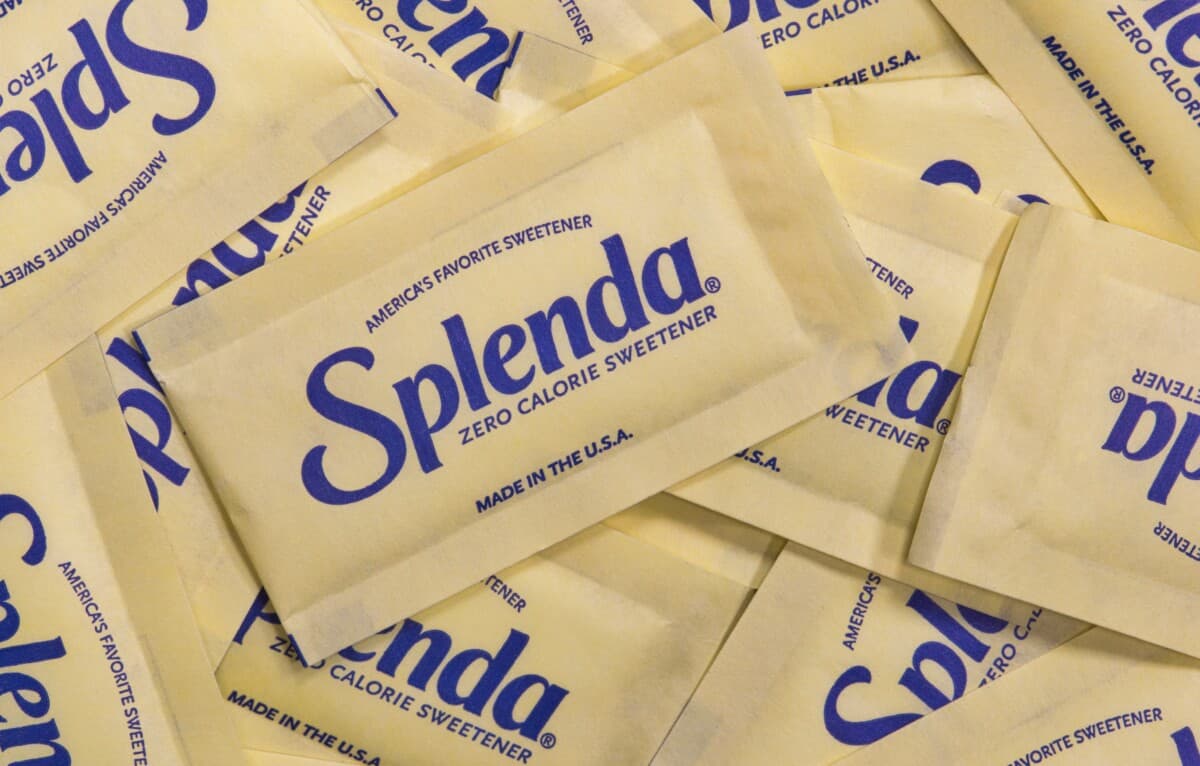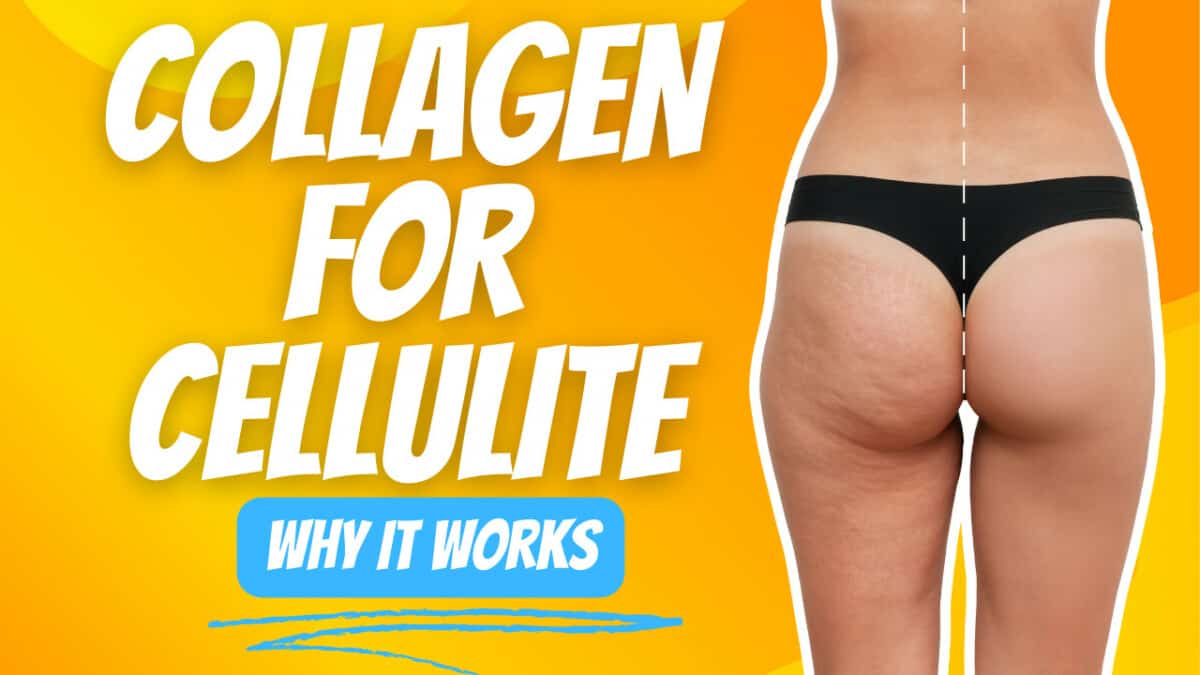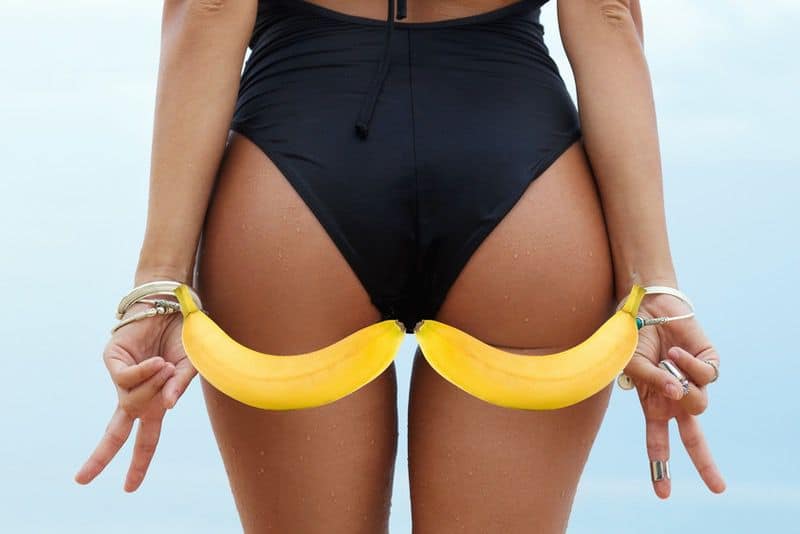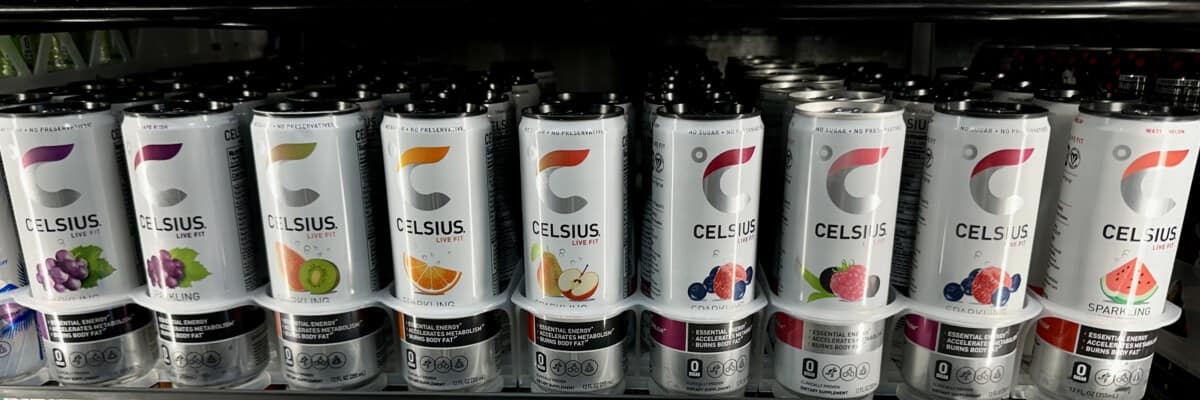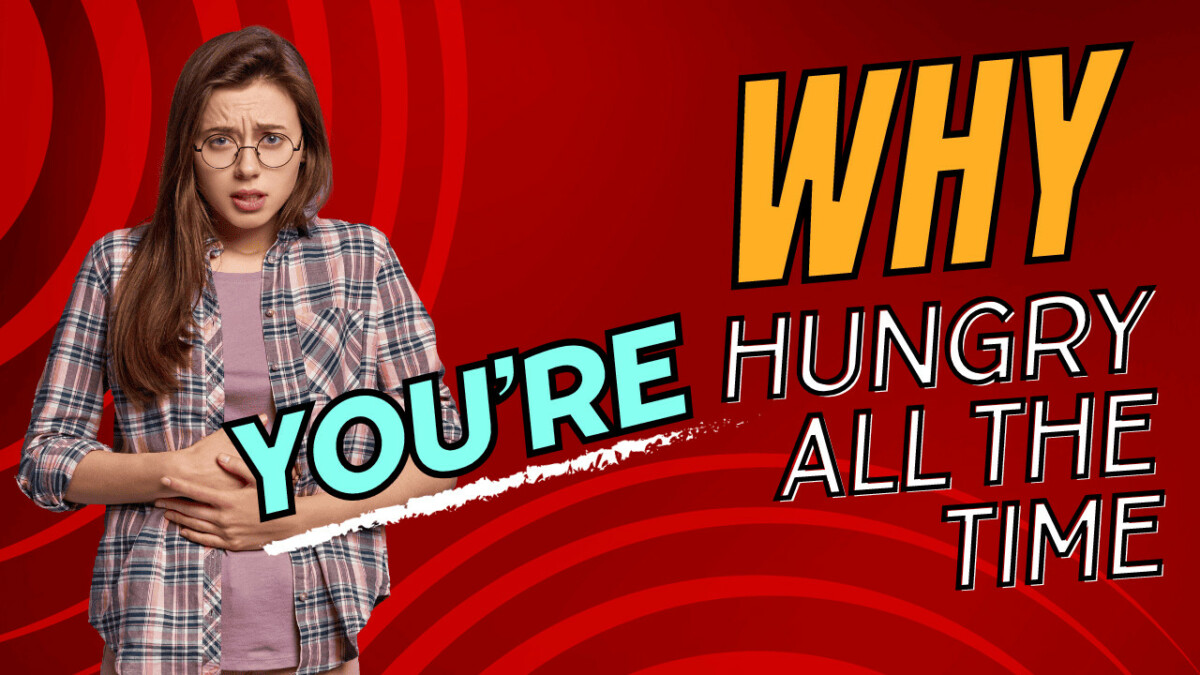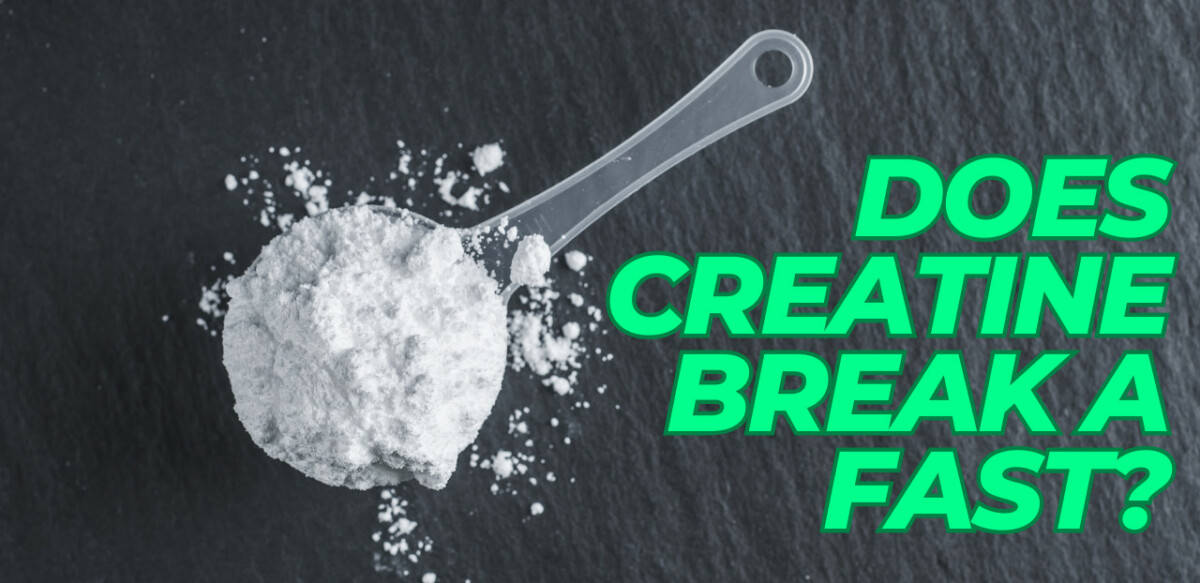So is Vitamin Water good for you or bad? Vitamin Water promises hydration but also serves up a healthy dose of vitamins. But is all the marketing and hype behind Vitamin Water worth it?
Vitamin Water seems like a promising tasty solution for quenching your thirst while fueling your body with healthy vitamins. But it’s important to look behind the surface of all the hype, bright colors, and marketing to uncover if it’s really good or bad for you.
It’s hard to know what drinks are healthy for you or just another hyped-up sugar water. The last thing you want to do is drink a lot of Vitamin Water only to find out you are paying for unhealthy sugar water.
In this article, you’ll get a much clearer picture of the ingredients in Vitamin Water, their potential benefits, and areas of concern. Then you’ll be able to make an informed choice on Vitamin Water, knowing if it actually works or if it’s something you want to dismiss from your diet.
The Pros and Cons of Vitamin Water
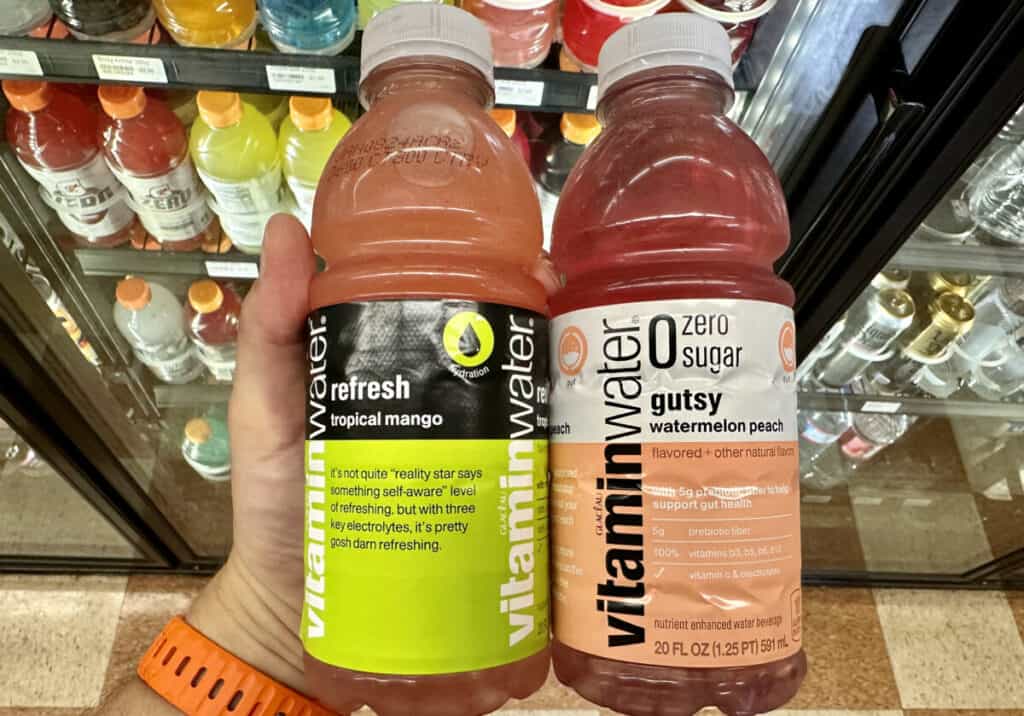
You might think Vitamin Water is healthy because it contains vitamins but the standard formula for Vitamin Water shouldn’t be drunk regularly due to its high calories, fructose, and sugar. Excessive sugar consumption can cause weight gain, diabetes, and other health problems.
Let’s dig deeper into the good and bad with Vitamin Water…
Pros:
Taste and Hydration: There’s no doubt that many Vitamin Water flavors are delicious. Most people will want to drink Vitamin Water (and other sugar-sweetened beverages) for their taste. This can help those who struggle with drinking plain water to stay hydrated by making the water more palatable.
Vitamin Supplementation: There are quite a few vitamins in Vitamin Water that benefit your health. Most Vitamin Water flavors are high in vitamins C, B3, B5, B6, and B12. All of these can enhance energy levels, immunity, and mood.
Electrolyte Balance: Vitamin Water also contains electrolytes that help your muscle function, energy, and fluid balance. This is beneficial for after-workout nutrition, easing hangovers, and preventing dehydration.
Functional Formulations: Some versions and flavors of Vitamin Water have been formulated for specific functions like providing an energy boost, relaxation, high antioxidants, or supporting the immune system. The caffeine in some Vitamin Waters formulated for energy typically contains less than that in energy drinks.
Cons:
High Sugar: Its biggest downside is the high amount of sugar in Vitamin Water. Most Vitamin Waters contain almost 30g of sugar per bottle. Excessive sugar intake is linked to health problems such as weight gain, type 2 diabetes, heart disease, and tooth decay.
Empty Calories: Most Vitamin Waters are about 100 calories per bottle due to their sugar content. This might not seem too high, but when you compare it to plain water (0 calories), then it is. You’ll add unnecessary sugar and calories to your daily diet that can add to weight gain over time.
Artificial Ingredients: Vitamin Water Zero uses artificial sweeteners instead of sugar. While they’re generally considered safe in moderation, some do not tolerate them well. And some studies are finding that they could cause some health problems.
Poorly Absorbed Vitamins: Getting your vitamins and minerals is usually best from the foods you eat. There is a much higher absorption rate of vitamins and minerals from foods. Your body may have a harder time absorbing the vitamins and could end up peeing them out. While you’ll indeed absorb some of the vitamins, you’re likely absorbing fewer than you would eating foods.
Marketing and Hype: The marketing and hype behind vitamin water can give you, the consumer, the impression that it’s healthier than drinking water and can be a primary source of essential vitamins in your diet. This can cause you to drink more Vitamin Water instead of plain water. You’ll also spend more money on Vitamin Water than plain water, which you can get for free.
Coca-Cola, the owner of Vitamin Water, was sued in 2016 for false advertising and misleading consumers into thinking it was healthy for them when it contained 8 teaspoons of sugar. Coca-Cola would settle the case.
Vitamin Water Zero Sugar – Good for You?
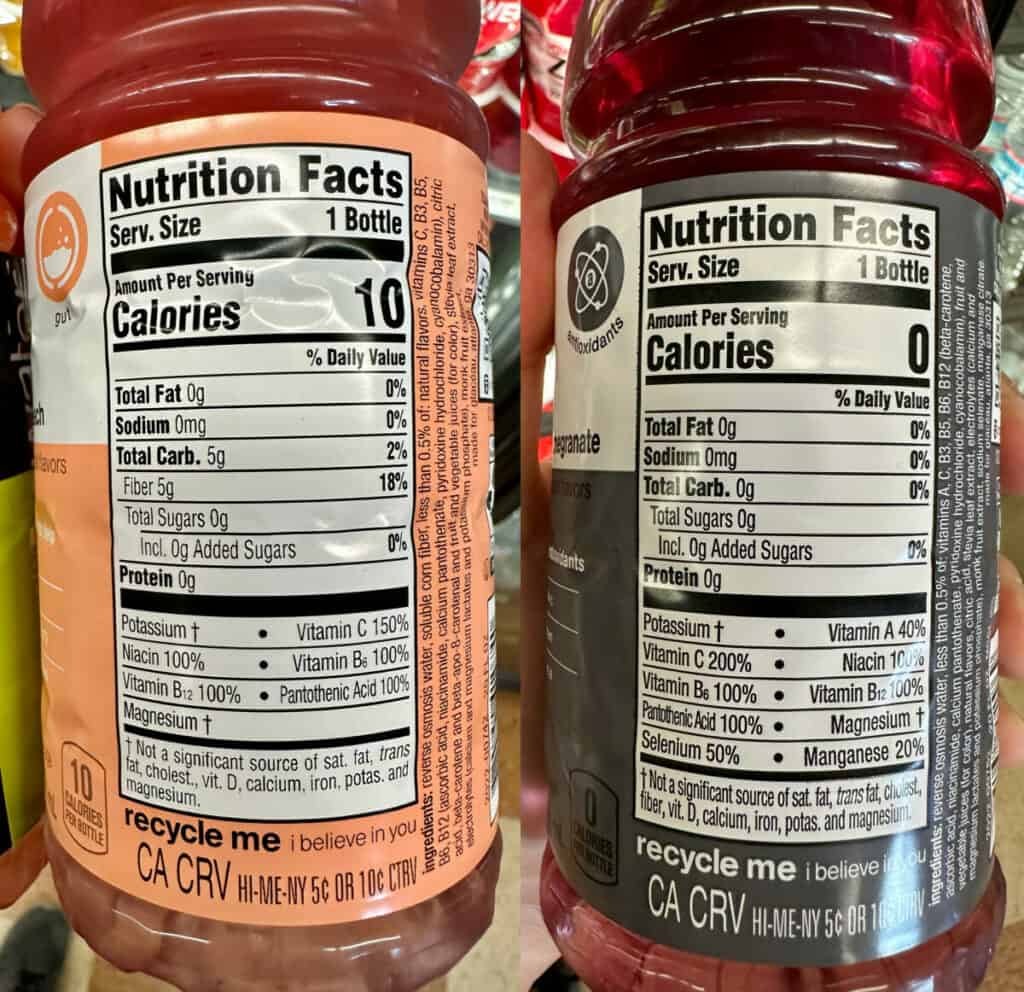
The difference between the standard regular Vitamin Water and Vitamin Water Zero Sugar is the latter has no sugar. Instead of sugar, Vitamin Water Zero Sugar uses artificial and natural sweeteners instead.
Since Vitamin Water Zero Sugar contains no sugar, it also doesn’t contain any calories. The regular Vitamin Water gets all the calories from the sugar. This makes Vitamin Water Zero much healthier, especially for weight loss.
Stevia leaf extract and monk fruit extract are the two sweeteners in Vitamin Water Zero. These are much healthier and more natural sweeteners than the usually used aspartame and sucralose.
The older formulation of Vitamin Water Zero used to have erythritol, a sugar alcohol, as a sweetener too. This created some controversy since erythritol can cause gut health issues. Erythritol also technically contains a small amount of calories, so it’s not calorie-free.
But the new Vitamin Water Zero Sugar formulation now uses stevia leaf extract and monk fruit extract for its sweetener. This makes it a much healthier option than the previous Vitamin Water Zero formulation.
Key Takeaways:
- Drinking Vitamin Water Zero Sugar versions will be much healthier if you want to drink Vitamin Water.
- This doesn’t contain sugar or calories, making it better for weight loss.
- And its new formulation uses natural sweeteners, stevia, and monk fruit instead of sugar alcohols.
Does Vitamin Water Work? Is It Healthy?
Vitamin Water can help hydrate you, and vitamins inside can enhance certain health benefits. But Vitamin Water also lacks the necessary electrolytes for ensuring proper hydration.
Sodium: Sodium is the primary positively charged ion in extracellular fluid, which refers to the fluid outside cells. It plays a crucial role in maintaining fluid balance by regulating the amount of water in and around cells. Sodium also plays a role in nerve impulse transmission and muscle function.
Vitamin Water contains zero amounts of sodium. To be fair, most people already consume a lot of sodium in their diet. But if you’re an athlete trying to maximize your hydration, then you’ll need sodium. This is why Gatorade can be advantageous for hydration for athletes over Vitamin Water.
Potassium: Potassium is the main positive ion found in intracellular fluid, which is the fluid located inside cells. It is necessary for proper cell function, muscle contractions, and maintaining the heart’s electrical activity. Maintaining a proper sodium-potassium balance is essential for cellular hydration and function.
Vitamin Water contains a tiny amount of potassium, if any at all, in some varieties. Many Vitamin Waters only contain 60mg of potassium which is only 2% of your daily requirement.
Vitamin Water Zero Sugar’s new formulation is much better and healthier than its previous version. The previous version used erythritol and other questionable ingredients that many would be concerned with putting their body.
Key Takeaways:
- The new formulation is overall considered healthy in moderation. But you shouldn’t expect it to work wonders.
- If you have trouble drinking enough water and want a vitamin boost, this can help.
- Just make sure you get the Vitamin Water Zero Sugar flavors and skip the high-sugar regular version.
Is Vitamin Water Good for Weight Loss?
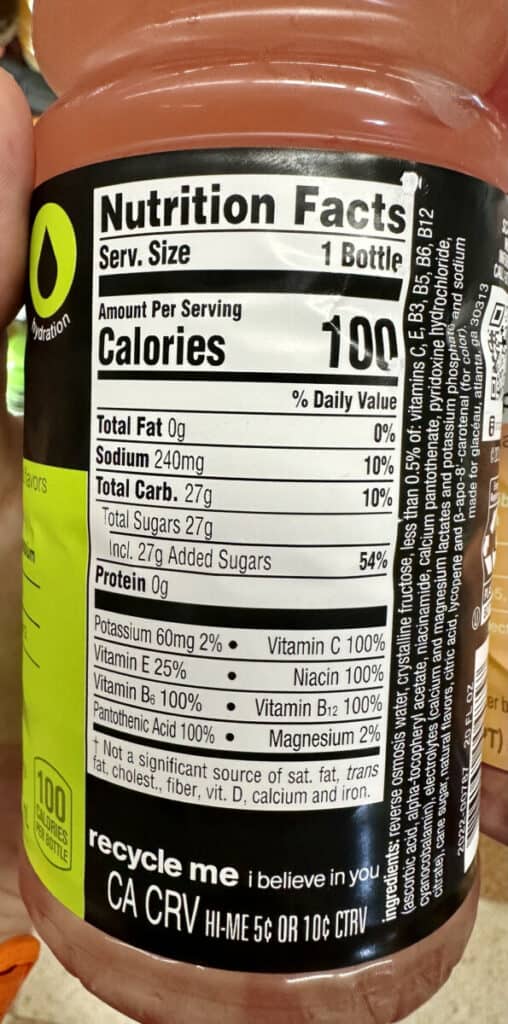
The standard and regular version of Vitamin Water is definitely not good for weight loss because of its high sugar content. Excessive sugar consumption can lead to weight gain, obesity, and type 2 diabetes. So it’s best to limit or cut out all of your sugar consumption if you’re trying to lose weight.
Vitamin Water Zero Sugar varieties will be more beneficial for weight loss since they do not contain any sugar. The natural sweeteners, stevia and Monk fruit, will be healthier than artificial sweeteners like aspartame and sucralose.
But it is believed that since sweeteners other than sugar are significantly sweeter than sugar itself (stevia 300x sweeter), it could cause an insulin response in your body. This could cause you to eat more and develop a higher tolerance for sweetness, leading you to crave more highly sweet foods in the future.
The key is if you drink a Vitamin Water Zero Sugar, then do so in limited quantities and in moderation. Drinking a Vitamin Water Zero Sugar will be much healthier and better for weight loss than a soda. This is especially true if it helps to crave your sweet tooth and prevents you from eating other bad sugar-sweetened drinks.
Key Takeaways:
- Vitamin Water Zero Sugar can help with weight loss by replacing other sugar-sweetened beverages.
- Stay away from the standard regular Vitamin Water since they contain a high amount of added sugar.
- Be aware the non-sugar sweeteners added to Vitamin Water Zero Sugar could still cause an insulin release and increase sugar cravings.
Why Vitamin Water Isn’t Better Than Plain Water
Drinking Vitamin Water shouldn’t replace drinking plain water in the big picture. I know some have trouble drinking plain water, especially earlier in the day, which can lead to dehydration. This is when drinking Vitamin Water Zero Sugar can be beneficial if it encourages you to drink more fluids since it’s more palatable and tasty.
But drinking plain water should make up the majority of your fluid intake instead of vitamin water. While Vitamin Water Zero Sugar is healthier, but it is also quite sweet compared to plain water. Over time this can cause you to develop a higher tolerance for sweet foods and beverages which will cause you to crave more and more.
Also, your body can have a response from the high sweetness even though they’re from natural sweeteners Stevia and Monk fruit. This can cause an insulin release in your body in anticipation of incoming food called the Cephalic Phase Insulin Response. This is similar to when your mouth waters after seeing a delicious meal.
As long as you’re limiting your intake and consumption of Vitamin Water Zero Sugar, you should be able to have it daily if you wish to. The new formulation of Vitamin Water Zero Sugar is much healthier than the previous version, and you should be fine drinking it in moderation.
Conclusion: The Final Verdict on Vitamin Water
At the end of the day, nothing beats plain water when choosing a hydration source. Plain water is zero-calorie, natural, and contains no additives, added sugars, or sweeteners. The health benefits of plain water are endless, and it’s also a refreshing drink. And it’s always best to get your vitamins and minerals from real whole foods.
While branded as a health drink, Vitamin Water has positives and negatives. For those looking to supplement their vitamin intake or want a tasty hydration option occasionally, Vitamin Water Zero Sugar is a better choice compared to the regular sugary version.
Still, it shouldn’t be a primary hydration source due to the potential overconsumption of natural sweeteners. Vitamin Water’s health claims are doubtful, considering their products’ low amount of vitamins and minerals. It is a healthier alternative for those on a weight loss journey than other sugar-sweetened beverages.
So is Vitamin Water healthy? As with many food and drink choices, moderation is key, and you shouldn’t overestimate its health benefits. Make sure you’re reading labels, understand what you’re consuming, and stay educated on the best choices for your health and well-being.
Josh holds a Bachelor’s degree in Exercise Physiology and Nutrition Science. He’s a Certified Strength and Conditioning Specialist (CSCS) by the National Strength and Conditioning Association and he’s a Certified Personal Trainer (CPT) by American Council on Exercise. He’s worked as a Strength and Conditioning Coach at the high school and college levels. He has over 15 years of experience as a personal trainer and nutrition coach. He strives to bring inspiration and results for people to live healthier lives through smart diet and exercise.


